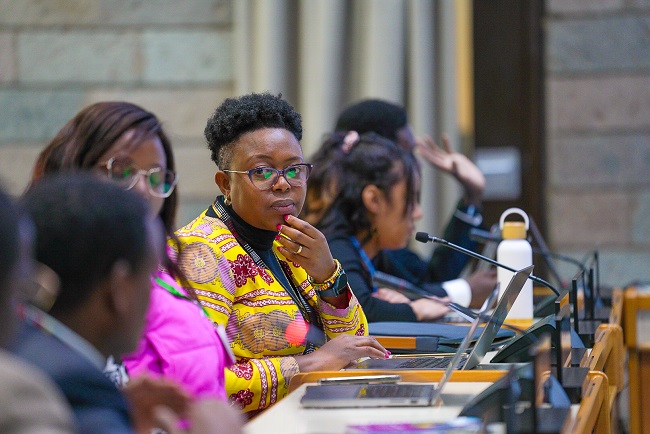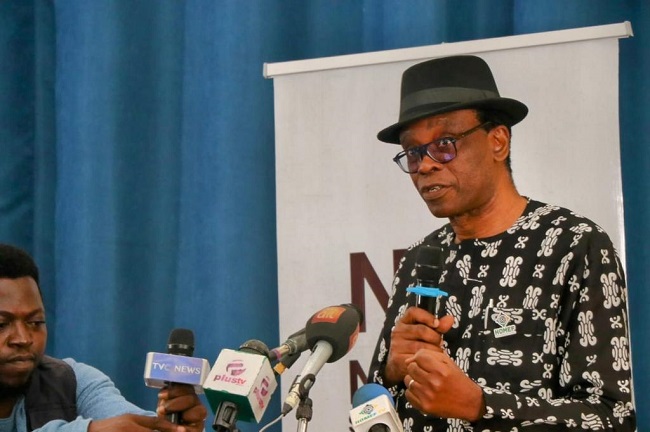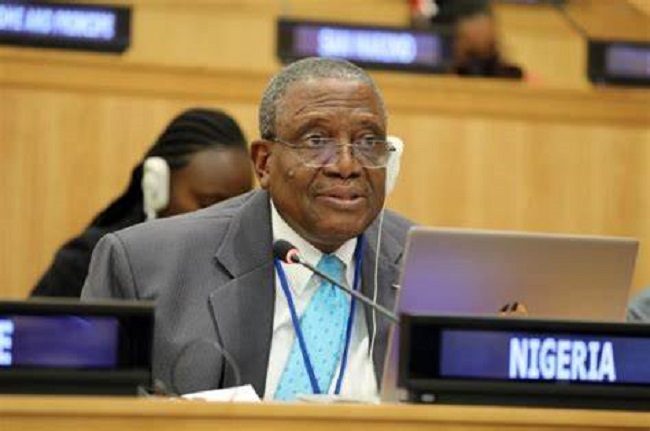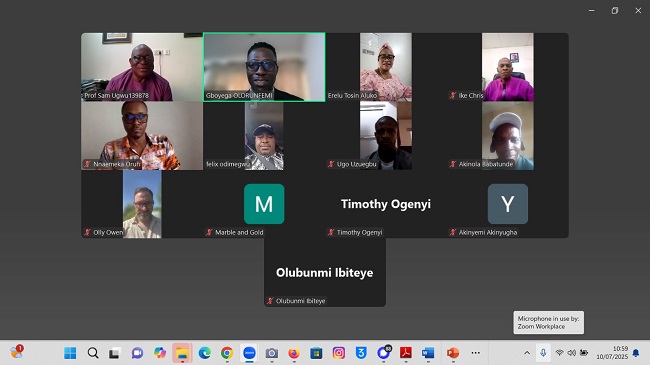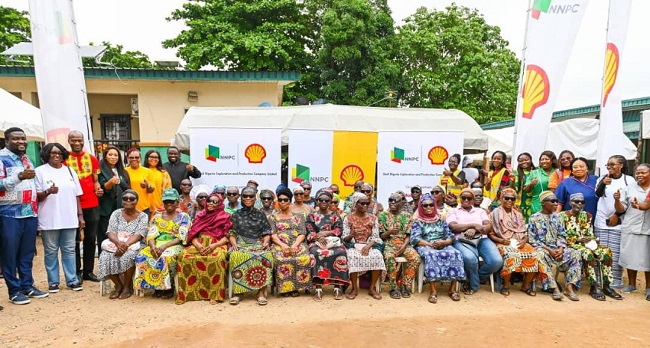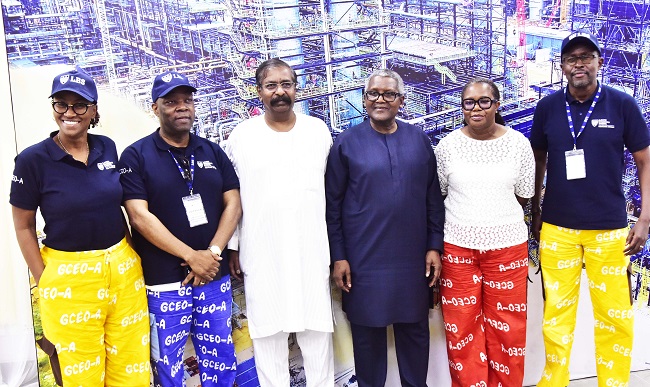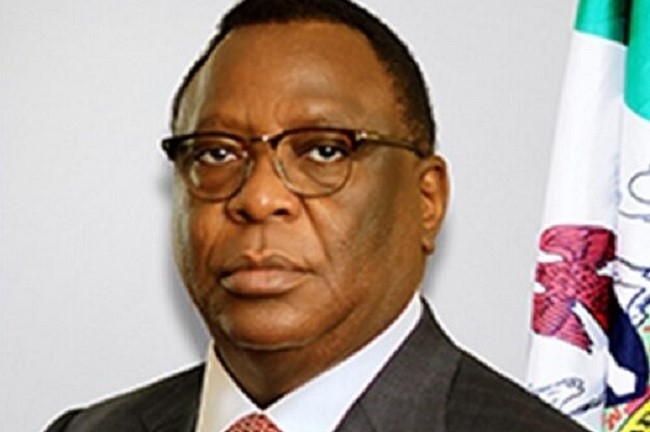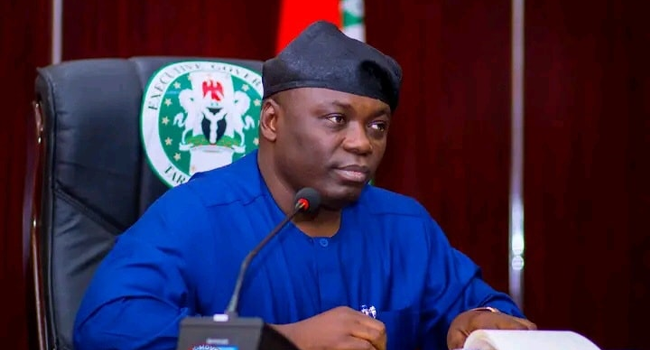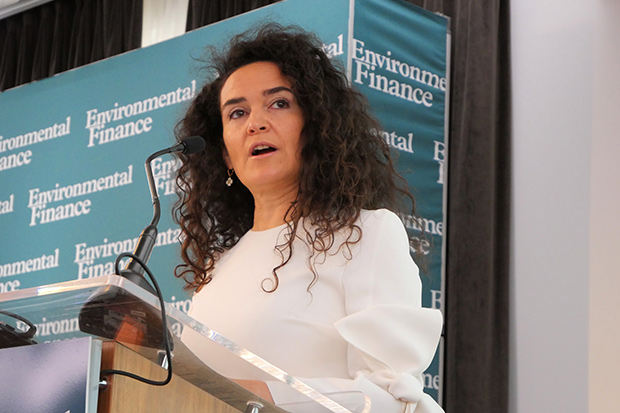Adebisi Opeyemi’s journey with Pemnia Wellness began as a simple NYSC project driven by her passion for food security and nutrition. Today, it has grown into a thriving agribusiness producing innovative, orange-fleshed sweet potato (OFSP) products that tackle vitamin A deficiency while empowering women farmers in her community. Her success story was made possible by the BATN Foundation’s Farmers for the Future (F4F) programme, which provided the funding, business training, and mentorship that turned her vision into a viable enterprise

Tell us about Pemnia Wellness. How did your journey begin?
It was born out of a deep passion for food security, nutrition and community empowerment during my NYSC year in 2023. As a graduate of Crop Production, I was always concerned about the widespread issue of Vitamin A Deficiency (VAD) in Nigeria. During my service year, I discovered the potential of biofortified Orange Fleshed Sweet Potato (OFSP) to combat malnutrition and create economic opportunities.
I participated in the Farmers for the Future (F4F) and emerged as one of the winners. This win was the push that turned Pemnia Wellness from an idea to a real enterprise. What began as a small vision during NYSC is now a growing enterprise committed to sustainable nutrition and impactful agribusiness of providing nutritious OFSP-based products such as Vita Flour, Vita Meal, Vita Garri and Vita Crisps.
What role did the Farmers for the Future Grant play?
The Farmers for the Future (F4F) Grant was a game-changer for Pemnia Wellness. At the time we received the grant, we were still at the product development stage and struggling to find our place in the market. The grant provided us with the financial and strategic support needed to complete our product development, conduct trials and launch our Orange-Fleshed Sweet Potato (OFSP)-based products into the market.
Through the F4F programme, I also gained access to tailored business training, mentorship and practical exposure to food processing best practices, which helped me improve our production quality, develop proper branding and build systems for sustainability. We were also able to purchase essential equipment that allowed us to scale our operations modestly.
What’s the most rewarding part of your journey so far?
The most rewarding part of my journey has been seeing how Pemnia Wellness is creating real, measurable impact in people’s lives especially women and young people and creating market access to women in Orange Fleshed Sweet Potato (OFSP) cultivation. One unforgettable moment was when a respected entrepreneur recognized my brand before I introduced myself, it reminded me that our impact is being seen. Knowing that a product I started developing during NYSC is now helping to fight vitamin A deficiency and improve livelihoods in my community is fulfilling. That ripple effect of health, empowerment, and hope is the most priceless part of this journey.
What’s been your biggest win so far?
One of my biggest wins has been successfully taking Pemnia Wellness from product development to market launch, with over 256 units sold under 10 months purely through community marketing and referrals. This year, we proudly received the Outstanding Business Person Award by Business Women hub Nigeria, a powerful recognition of the impact we are making in agribusiness and nutrition. Another major milestone was securing our FDA approval, which has validated the quality and safety of our products and positioned us for wider market access. These wins, combined with our continuous efforts to empower women and youth in OFSP cultivation reflect the purposeful growth of Pemnia Wellness.
What was your experience like during the selection and training process?
The selection and training process for the Farmers for the Future Grant was transformative. From refining our business model during the pitch phase to going through the selection bootcamp, every stage challenged me to think deeper about Pemnia Wellness’s value, structure and long-term sustainability. The mentorship sessions helped sharpen our strategic thinking and product positioning, while the training provided practical insights into agribusiness management, branding and market access.
One of the most inspiring aspects was connecting with other young Agripreneurs who were equally passionate about transforming food systems in Nigeria.
What skill or lesson from F4F do you still use today?
One of the most valuable lessons I gained from the F4F programme is the importance of product market fit and strategic positioning. During the training, I learned how to refine my value proposition, validate market needs and tailor our messaging to target the right audience. This helped us align our OFSP-based products with health-conscious consumers and institutional buyers. The skills gained have enhanced our operational efficiency, minimized waste and made our business more attractive to partners and buyers.
What impact has the grant had on your business?
A lot! The Farmers for the Future (F4F) grant came in at the right time for Pemnia Wellness. At the time we received the grant, we didn’t yet have a market-ready product, just prototypes and a strong vision. The grant helped us complete product development for our orange-fleshed sweet potato (OFSP) products; Vita Flour, Vita Meal, Vita Garri and Vita Crisps, and launch into the market with proper packaging, branding and initial market testing.
The funds enabled us to purchase critical processing equipments, conduct product nutritional analysis, register our trademark, and kickstart the regulatory processes. We began engaging paying customers, reaching over 100 people in first six months. We have since earned FDA approval and expanded brand recognition. The F4F grant funded our operations and gave us the credibility, exposure and momentum to grow an impactful agribusiness.
What do you tell people who say, “Agriculture isn’t for youth”?
I tell them they are seeing agriculture through an outdated lens. Agriculture today is a space for innovation, technology and real social impact. With the right mindset and platforms like Farmers for the Future, young people can build scalable, profitable, and purpose-driven ventures. Agriculture is the future and youth are the drivers of that transformation.
What challenges have you overcome, and how has the support from the program helped you navigate them?
One of our major challenges at Pemnia Wellness was completing product development without access to sufficient funding, setting up basic processing infrastructure and navigating regulatory requirements for market entry. We also struggled with limited market visibility and access to technical expertise. The Farmers for the Future (F4F) programme provided funding and clarity. The programme gave me the right tools, confidence, and network to transform our initial idea into a growing solution that addresses nutrition, food loss and youth empowerment.
Have you created jobs or mentored others?
Yes, today I employ three permanent staff who manage daily operations, production and logistics. Additionally, we engage 12 community women as seasonal workers during production periods, providing them with income opportunities and hands-on experience in food processing. Beyond employment, I actively mentor upcoming entrepreneurs who have been inspired by Pemnia Wellness. Many of them reached out after seeing our work and impacts and I have supported them with practical guidance, sharing insights on value addition, product development and navigating early-stage agribusiness challenges.
What does sustainable farming mean to you?
To me, sustainable farming means cultivating with care producing food in a way that nourishes people while preserving the environment and supporting local economies. It’s about minimizing waste, using clean energy and creating inclusive systems where women, youth and smallholder farmers can thrive economically.
What’s next for you and your business?
At Pemnia Wellness, the next phase is scaling our production capacity and expanding our reach beyond Oyo State into two new African markets in other states and countries through strategic partnerships. We are working towards getting NAFDAC and SON final approval to access larger retail chains, schools and hospitals. We also plan to set up a dedicated clean energy processing facility to improve efficiency and reduce post-harvest losses. Long-term, the goal is to become a model enterprise in biofortified food processing empowering youths, supporting smallholder farmers, and nourishing communities with nutritious food solutions.
What would you say to other youth or Corps Members considering applying for the next grant?
Go for it, this opportunity can be the turning point in your entrepreneurial journey. The Farmers for the Future (F4F) grant is a launchpad that provides training, mentorship, visibility and a supportive network. More details on the grant is available via the BATN Foundation mobile app or visit the website www.batnf.net/wealthishere I applied during my NYSC year with just a vision and today PEMNIA WELLNESS is a recognised brand driving nutrition, sustainability and youth empowerment. Be bold, stay clear on your goals and apply. Agribusiness is the future, and this programme is investing in the leaders who will shape it.
Any tips for new applicants?
Application for the 2025 edition is currently open and closes 20th July 2025. Focus on the problem you are solving, not just the product you are offering. Be clear about your value chain, your target beneficiaries, and how your idea creates real impact economically, socially, or environmentally. Use data or field experience to back up your claims. Show tractions, how your solution stands out and is scalable. And most importantly, be authentic, let your passion and purpose shine through.

